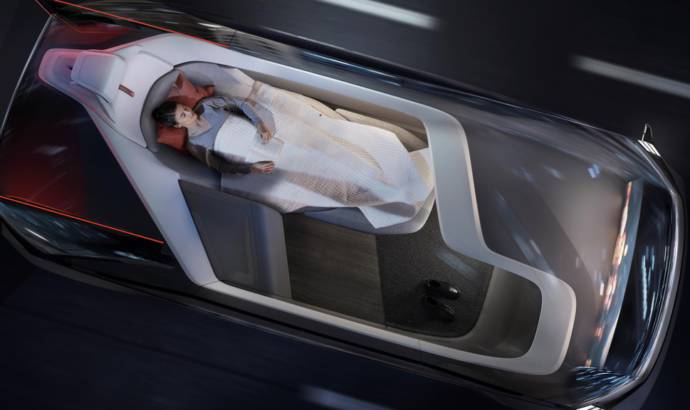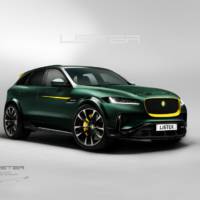Volvo is imagining the future as every premium manufacturer does. You won’t be needing to drive a car. You just have to let yourself on the hand of an autonomous cars that will deliver you to your destination.
It is this vision for the future of autonomous travel that Volvo Cars reveals today with its new Volvo 360c concept, a holistic view of a future of travel that is autonomous, electric, connected and safe. It could open up new growth markets for Volvo Cars, for example in the multi-billion-dollar domestic air travel industry.
The basis of the 360c is a fully autonomous, fully electric car without a human driver. The concept capitalises on the freedom in design afforded by the absence of a steering wheel and a combustion engine, providing the ability to reimagine the traditional placement of passengers in rows of two or three.
The 360c presents four potential uses of autonomous driving vehicles – a sleeping environment, mobile office, living room and entertainment space – which all reimagine the way people travel. It also introduces a proposal for a global standard in how autonomous vehicles can safely communicate with all other road users.
The 360c represents a potentially lucrative competitor to short-haul air travel, a multi-billion-dollar industry comprising airlines, aircraft makers and other service providers. Shorter routes where the distance between origin and destination is around 300 kilometres are prime candidates for disruption by an alternative mode of travel.
For example, within the United States, more than 740 million travellers embarked on domestic flights last year, and America’s domestic air travel industry is worth billions of dollars in revenue. Several busy domestic air routes, such as New York to Washington DC, Houston to Dallas and Los Angeles to San Diego, are more time-consuming by air than by car when including things such as travel to the airport, security checks and waiting times.



